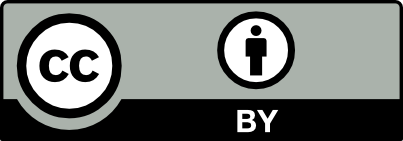The negative washback effect of baccalaureate examination on English teaching methodology and learner motivation
Youssef Zatouli 1
Applied Language and Cultural Studies, FLSH, Chouaib Doukali University, El Jadida, Morocco.
Corresponding author: zatouli.youssef@ucd.ac.ma
DOI: 10.5281/zenodo.14788348
Language assessment and evaluation are crucial elements in the language teaching and learning process in particular and Education in general and are considered to be their pedagogical GPS. Yet, their outcome is not always advantageous. The aim of this research is to investigate the negative impact Moroccan Baccalaureate examination has on grammar teaching methodology, learning attitudes, and learning outcomes. The theoretical framework the study starts from is Messick’s (1989) new interactive validity model and Alderson and Wall’s (1993) washback hypothesis. To test its hypothesis, this study employs a mixed-research methodology (MMR), relying both on quantitative and qualitative data collection and analysis instruments, namely, questionnaires comprising yes/no checklists, rating items, Likert scales, and eventually interviews. The results show that (i) most teachers in this study believe that the Baccalaureate examination negatively affects their grammar planning discretion and makes it un-communicative and deductive, (ii) that most students form negative attitudes towards grammar due to the final summative examination, and that (iii) university professors believe that learners come to university linguistically and cognitively unprepared for their academic tasks because of the Baccalaureate negative washback. The research suggests some recommendations to deal with the negative washback impact, namely on the curricular, methodology, and assessment philosophy levels.
Keywords: washback, assessment, evaluation, consequential validity, validity, CLT.
Published
2024/02/04
—
Section
Research Papers
16359756
{16359756:USMSAAS3}
1
apa
50
default
784
https://ijtie.com/wp-content/plugins/zotpress/
%7B%22status%22%3A%22success%22%2C%22updateneeded%22%3Afalse%2C%22instance%22%3Afalse%2C%22meta%22%3A%7B%22request_last%22%3A0%2C%22request_next%22%3A0%2C%22used_cache%22%3Atrue%7D%2C%22data%22%3A%5B%7B%22key%22%3A%22USMSAAS3%22%2C%22library%22%3A%7B%22id%22%3A16359756%7D%2C%22meta%22%3A%7B%22creatorSummary%22%3A%22Zatouli%22%2C%22parsedDate%22%3A%222024-02-04%22%2C%22numChildren%22%3A0%7D%2C%22bib%22%3A%22%26lt%3Bdiv%20class%3D%26quot%3Bcsl-bib-body%26quot%3B%20style%3D%26quot%3Bline-height%3A%202%3B%20padding-left%3A%201em%3B%20text-indent%3A-1em%3B%26quot%3B%26gt%3B%5Cn%20%20%26lt%3Bdiv%20class%3D%26quot%3Bcsl-entry%26quot%3B%26gt%3BZatouli%2C%20Y.%20%282024%29.%20The%20negative%20washback%20effect%20of%20baccalaureate%20examination%20on%20English%20teaching%20methodology%20and%20learner%20motivation.%20%26lt%3Bi%26gt%3BThe%20International%20Journal%20of%20Technology%2C%20Innovation%2C%20and%20Education%26lt%3B%5C%2Fi%26gt%3B%2C%20%26lt%3Bi%26gt%3B2%26lt%3B%5C%2Fi%26gt%3B%281%29%2C%207%26%23×2013%3B34.%20%26lt%3Ba%20class%3D%26%23039%3Bzp-DOIURL%26%23039%3B%20href%3D%26%23039%3Bhttps%3A%5C%2F%5C%2Fdoi.org%5C%2F10.5281%5C%2Fzenodo.14788348%26%23039%3B%26gt%3Bhttps%3A%5C%2F%5C%2Fdoi.org%5C%2F10.5281%5C%2Fzenodo.14788348%26lt%3B%5C%2Fa%26gt%3B%26lt%3B%5C%2Fdiv%26gt%3B%5Cn%26lt%3B%5C%2Fdiv%26gt%3B%22%2C%22data%22%3A%7B%22itemType%22%3A%22journalArticle%22%2C%22title%22%3A%22The%20negative%20washback%20effect%20of%20baccalaureate%20examination%20on%20English%20teaching%20methodology%20and%20learner%20motivation%22%2C%22creators%22%3A%5B%7B%22creatorType%22%3A%22author%22%2C%22firstName%22%3A%22Youssef%22%2C%22lastName%22%3A%22Zatouli%22%7D%5D%2C%22abstractNote%22%3A%22Language%20assessment%20and%20evaluation%20are%20crucial%20elements%20in%20the%20language%20teaching%20and%20learning%20process%20in%20particular%20and%20Education%20in%20general%20and%20are%20considered%20to%20be%20their%20pedagogical%20GPS.%20Yet%2C%20their%20outcome%20is%20not%20always%20advantageous.%20The%20aim%20of%20this%20research%20is%20to%20investigate%20the%20negative%20impact%20Moroccan%20Baccalaureate%20examination%20has%20on%20grammar%20teaching%20methodology%2C%20learning%20attitudes%2C%20and%20learning%20outcomes.%20The%20theoretical%20framework%20the%20study%20starts%20from%20is%20Messick%5Cu2019s%20%281989%29%20new%20interactive%20validity%20model%20and%20Alderson%20and%20Wall%5Cu2019s%20%281993%29%20washback%20hypothesis.%20To%20test%20its%20hypothesis%2C%20this%20study%20employs%20a%20mixed-research%20methodology%20%28MMR%29%2C%20relying%20both%20on%20quantitative%20and%20qualitative%20data%20collection%20and%20analysis%20instruments%2C%20namely%2C%20questionnaires%20comprising%20yes%5C%2Fno%20checklists%2C%20rating%20items%2C%20Likert%20scales%2C%20and%20eventually%20interviews.%20The%20results%20show%20that%20%28i%29%20most%20teachers%20in%20this%20study%20believe%20that%20the%20Baccalaureate%20examination%20negatively%20affects%20their%20grammar%20planning%20discretion%20and%20makes%20it%20un-communicative%20and%20deductive%2C%20%28ii%29%20that%20most%20students%20form%20negative%20attitudes%20towards%20grammar%20due%20to%20the%20final%20summative%20examination%2C%20and%20that%20%28iii%29%20university%20professors%20believe%20that%20learners%20come%20to%20university%20linguistically%20and%20cognitively%20unprepared%20for%20their%20academic%20tasks%20because%20of%20the%20Baccalaureate%20negative%20washback.%20The%20research%20suggests%20some%20recommendations%20to%20deal%20with%20the%20negative%20washback%20impact%2C%20namely%20on%20the%20curricular%2C%20methodology%2C%20and%20assessment%20philosophy%20levels.%22%2C%22date%22%3A%222024-02-04%22%2C%22section%22%3A%22%22%2C%22partNumber%22%3A%22%22%2C%22partTitle%22%3A%22%22%2C%22DOI%22%3A%2210.5281%5C%2Fzenodo.14788348%22%2C%22citationKey%22%3A%22%22%2C%22url%22%3A%22http%3A%5C%2F%5C%2Fijtie.com%5C%2Fv201%5C%2Fn21%22%2C%22PMID%22%3A%22%22%2C%22PMCID%22%3A%22%22%2C%22ISSN%22%3A%222820-7521%22%2C%22language%22%3A%22en%22%2C%22collections%22%3A%5B%5D%2C%22dateModified%22%3A%222025-03-24T17%3A20%3A27Z%22%7D%7D%5D%7D
Zatouli, Y. (2024). The negative washback effect of baccalaureate examination on English teaching methodology and learner motivation.
The International Journal of Technology, Innovation, and Education,
2(1), 7–34.
https://doi.org/10.5281/zenodo.14788348
Chicago
MLA
IEEE
Harvard
Vancouver
APA
Chicago
Chicago
MLA
IEEE
Harvard
Vancouver
APA
16359756
{16359756:USMSAAS3}
1
chicago-author-date
50
default
784
https://ijtie.com/wp-content/plugins/zotpress/
%7B%22status%22%3A%22success%22%2C%22updateneeded%22%3Afalse%2C%22instance%22%3Afalse%2C%22meta%22%3A%7B%22request_last%22%3A0%2C%22request_next%22%3A0%2C%22used_cache%22%3Atrue%7D%2C%22data%22%3A%5B%7B%22key%22%3A%22USMSAAS3%22%2C%22library%22%3A%7B%22id%22%3A16359756%7D%2C%22meta%22%3A%7B%22creatorSummary%22%3A%22Zatouli%22%2C%22parsedDate%22%3A%222024-02-04%22%2C%22numChildren%22%3A0%7D%2C%22bib%22%3A%22%26lt%3Bdiv%20class%3D%26quot%3Bcsl-bib-body%26quot%3B%20style%3D%26quot%3Bline-height%3A%201.35%3B%20padding-left%3A%201em%3B%20text-indent%3A-1em%3B%26quot%3B%26gt%3B%5Cn%20%20%26lt%3Bdiv%20class%3D%26quot%3Bcsl-entry%26quot%3B%26gt%3BZatouli%2C%20Youssef.%202024.%20%26%23x201C%3BThe%20Negative%20Washback%20Effect%20of%20Baccalaureate%20Examination%20on%20English%20Teaching%20Methodology%20and%20Learner%20Motivation.%26%23x201D%3B%20%26lt%3Bi%26gt%3BThe%20International%20Journal%20of%20Technology%2C%20Innovation%2C%20and%20Education%26lt%3B%5C%2Fi%26gt%3B%202%20%281%29%3A%207%26%23×2013%3B34.%20%26lt%3Ba%20class%3D%26%23039%3Bzp-DOIURL%26%23039%3B%20href%3D%26%23039%3Bhttps%3A%5C%2F%5C%2Fdoi.org%5C%2F10.5281%5C%2Fzenodo.14788348%26%23039%3B%26gt%3Bhttps%3A%5C%2F%5C%2Fdoi.org%5C%2F10.5281%5C%2Fzenodo.14788348%26lt%3B%5C%2Fa%26gt%3B.%26lt%3B%5C%2Fdiv%26gt%3B%5Cn%26lt%3B%5C%2Fdiv%26gt%3B%22%2C%22data%22%3A%7B%22itemType%22%3A%22journalArticle%22%2C%22title%22%3A%22The%20negative%20washback%20effect%20of%20baccalaureate%20examination%20on%20English%20teaching%20methodology%20and%20learner%20motivation%22%2C%22creators%22%3A%5B%7B%22creatorType%22%3A%22author%22%2C%22firstName%22%3A%22Youssef%22%2C%22lastName%22%3A%22Zatouli%22%7D%5D%2C%22abstractNote%22%3A%22Language%20assessment%20and%20evaluation%20are%20crucial%20elements%20in%20the%20language%20teaching%20and%20learning%20process%20in%20particular%20and%20Education%20in%20general%20and%20are%20considered%20to%20be%20their%20pedagogical%20GPS.%20Yet%2C%20their%20outcome%20is%20not%20always%20advantageous.%20The%20aim%20of%20this%20research%20is%20to%20investigate%20the%20negative%20impact%20Moroccan%20Baccalaureate%20examination%20has%20on%20grammar%20teaching%20methodology%2C%20learning%20attitudes%2C%20and%20learning%20outcomes.%20The%20theoretical%20framework%20the%20study%20starts%20from%20is%20Messick%5Cu2019s%20%281989%29%20new%20interactive%20validity%20model%20and%20Alderson%20and%20Wall%5Cu2019s%20%281993%29%20washback%20hypothesis.%20To%20test%20its%20hypothesis%2C%20this%20study%20employs%20a%20mixed-research%20methodology%20%28MMR%29%2C%20relying%20both%20on%20quantitative%20and%20qualitative%20data%20collection%20and%20analysis%20instruments%2C%20namely%2C%20questionnaires%20comprising%20yes%5C%2Fno%20checklists%2C%20rating%20items%2C%20Likert%20scales%2C%20and%20eventually%20interviews.%20The%20results%20show%20that%20%28i%29%20most%20teachers%20in%20this%20study%20believe%20that%20the%20Baccalaureate%20examination%20negatively%20affects%20their%20grammar%20planning%20discretion%20and%20makes%20it%20un-communicative%20and%20deductive%2C%20%28ii%29%20that%20most%20students%20form%20negative%20attitudes%20towards%20grammar%20due%20to%20the%20final%20summative%20examination%2C%20and%20that%20%28iii%29%20university%20professors%20believe%20that%20learners%20come%20to%20university%20linguistically%20and%20cognitively%20unprepared%20for%20their%20academic%20tasks%20because%20of%20the%20Baccalaureate%20negative%20washback.%20The%20research%20suggests%20some%20recommendations%20to%20deal%20with%20the%20negative%20washback%20impact%2C%20namely%20on%20the%20curricular%2C%20methodology%2C%20and%20assessment%20philosophy%20levels.%22%2C%22date%22%3A%222024-02-04%22%2C%22section%22%3A%22%22%2C%22partNumber%22%3A%22%22%2C%22partTitle%22%3A%22%22%2C%22DOI%22%3A%2210.5281%5C%2Fzenodo.14788348%22%2C%22citationKey%22%3A%22%22%2C%22url%22%3A%22http%3A%5C%2F%5C%2Fijtie.com%5C%2Fv201%5C%2Fn21%22%2C%22PMID%22%3A%22%22%2C%22PMCID%22%3A%22%22%2C%22ISSN%22%3A%222820-7521%22%2C%22language%22%3A%22en%22%2C%22collections%22%3A%5B%5D%2C%22dateModified%22%3A%222025-03-24T17%3A20%3A27Z%22%7D%7D%5D%7D
Zatouli, Youssef. 2024. “The Negative Washback Effect of Baccalaureate Examination on English Teaching Methodology and Learner Motivation.”
The International Journal of Technology, Innovation, and Education 2 (1): 7–34.
https://doi.org/10.5281/zenodo.14788348.
16359756
{16359756:USMSAAS3}
1
modern-language-association
50
default
784
https://ijtie.com/wp-content/plugins/zotpress/
%7B%22status%22%3A%22success%22%2C%22updateneeded%22%3Afalse%2C%22instance%22%3Afalse%2C%22meta%22%3A%7B%22request_last%22%3A0%2C%22request_next%22%3A0%2C%22used_cache%22%3Atrue%7D%2C%22data%22%3A%5B%7B%22key%22%3A%22USMSAAS3%22%2C%22library%22%3A%7B%22id%22%3A16359756%7D%2C%22meta%22%3A%7B%22creatorSummary%22%3A%22Zatouli%22%2C%22parsedDate%22%3A%222024-02-04%22%2C%22numChildren%22%3A0%7D%2C%22bib%22%3A%22%26lt%3Bdiv%20class%3D%26quot%3Bcsl-bib-body%26quot%3B%20style%3D%26quot%3Bline-height%3A%202%3B%20padding-left%3A%201em%3B%20text-indent%3A-1em%3B%26quot%3B%26gt%3B%5Cn%20%20%26lt%3Bdiv%20class%3D%26quot%3Bcsl-entry%26quot%3B%26gt%3BZatouli%2C%20Youssef.%20%26%23x201C%3BThe%20Negative%20Washback%20Effect%20of%20Baccalaureate%20Examination%20on%20English%20Teaching%20Methodology%20and%20Learner%20Motivation.%26%23x201D%3B%20%26lt%3Bi%26gt%3BThe%20International%20Journal%20of%20Technology%2C%20Innovation%2C%20and%20Education%26lt%3B%5C%2Fi%26gt%3B%2C%20vol.%202%2C%20no.%201%2C%20Feb.%202024%2C%20pp.%207%26%23×2013%3B34%2C%20%26lt%3Ba%20class%3D%26%23039%3Bzp-DOIURL%26%23039%3B%20href%3D%26%23039%3Bhttps%3A%5C%2F%5C%2Fdoi.org%5C%2F10.5281%5C%2Fzenodo.14788348%26%23039%3B%26gt%3Bhttps%3A%5C%2F%5C%2Fdoi.org%5C%2F10.5281%5C%2Fzenodo.14788348%26lt%3B%5C%2Fa%26gt%3B.%26lt%3B%5C%2Fdiv%26gt%3B%5Cn%26lt%3B%5C%2Fdiv%26gt%3B%22%2C%22data%22%3A%7B%22itemType%22%3A%22journalArticle%22%2C%22title%22%3A%22The%20negative%20washback%20effect%20of%20baccalaureate%20examination%20on%20English%20teaching%20methodology%20and%20learner%20motivation%22%2C%22creators%22%3A%5B%7B%22creatorType%22%3A%22author%22%2C%22firstName%22%3A%22Youssef%22%2C%22lastName%22%3A%22Zatouli%22%7D%5D%2C%22abstractNote%22%3A%22Language%20assessment%20and%20evaluation%20are%20crucial%20elements%20in%20the%20language%20teaching%20and%20learning%20process%20in%20particular%20and%20Education%20in%20general%20and%20are%20considered%20to%20be%20their%20pedagogical%20GPS.%20Yet%2C%20their%20outcome%20is%20not%20always%20advantageous.%20The%20aim%20of%20this%20research%20is%20to%20investigate%20the%20negative%20impact%20Moroccan%20Baccalaureate%20examination%20has%20on%20grammar%20teaching%20methodology%2C%20learning%20attitudes%2C%20and%20learning%20outcomes.%20The%20theoretical%20framework%20the%20study%20starts%20from%20is%20Messick%5Cu2019s%20%281989%29%20new%20interactive%20validity%20model%20and%20Alderson%20and%20Wall%5Cu2019s%20%281993%29%20washback%20hypothesis.%20To%20test%20its%20hypothesis%2C%20this%20study%20employs%20a%20mixed-research%20methodology%20%28MMR%29%2C%20relying%20both%20on%20quantitative%20and%20qualitative%20data%20collection%20and%20analysis%20instruments%2C%20namely%2C%20questionnaires%20comprising%20yes%5C%2Fno%20checklists%2C%20rating%20items%2C%20Likert%20scales%2C%20and%20eventually%20interviews.%20The%20results%20show%20that%20%28i%29%20most%20teachers%20in%20this%20study%20believe%20that%20the%20Baccalaureate%20examination%20negatively%20affects%20their%20grammar%20planning%20discretion%20and%20makes%20it%20un-communicative%20and%20deductive%2C%20%28ii%29%20that%20most%20students%20form%20negative%20attitudes%20towards%20grammar%20due%20to%20the%20final%20summative%20examination%2C%20and%20that%20%28iii%29%20university%20professors%20believe%20that%20learners%20come%20to%20university%20linguistically%20and%20cognitively%20unprepared%20for%20their%20academic%20tasks%20because%20of%20the%20Baccalaureate%20negative%20washback.%20The%20research%20suggests%20some%20recommendations%20to%20deal%20with%20the%20negative%20washback%20impact%2C%20namely%20on%20the%20curricular%2C%20methodology%2C%20and%20assessment%20philosophy%20levels.%22%2C%22date%22%3A%222024-02-04%22%2C%22section%22%3A%22%22%2C%22partNumber%22%3A%22%22%2C%22partTitle%22%3A%22%22%2C%22DOI%22%3A%2210.5281%5C%2Fzenodo.14788348%22%2C%22citationKey%22%3A%22%22%2C%22url%22%3A%22http%3A%5C%2F%5C%2Fijtie.com%5C%2Fv201%5C%2Fn21%22%2C%22PMID%22%3A%22%22%2C%22PMCID%22%3A%22%22%2C%22ISSN%22%3A%222820-7521%22%2C%22language%22%3A%22en%22%2C%22collections%22%3A%5B%5D%2C%22dateModified%22%3A%222025-03-24T17%3A20%3A27Z%22%7D%7D%5D%7D
Zatouli, Youssef. “The Negative Washback Effect of Baccalaureate Examination on English Teaching Methodology and Learner Motivation.”
The International Journal of Technology, Innovation, and Education, vol. 2, no. 1, Feb. 2024, pp. 7–34,
https://doi.org/10.5281/zenodo.14788348.
16359756
{16359756:USMSAAS3}
1
ieee
50
default
784
https://ijtie.com/wp-content/plugins/zotpress/
%7B%22status%22%3A%22success%22%2C%22updateneeded%22%3Afalse%2C%22instance%22%3Afalse%2C%22meta%22%3A%7B%22request_last%22%3A0%2C%22request_next%22%3A0%2C%22used_cache%22%3Atrue%7D%2C%22data%22%3A%5B%7B%22key%22%3A%22USMSAAS3%22%2C%22library%22%3A%7B%22id%22%3A16359756%7D%2C%22meta%22%3A%7B%22creatorSummary%22%3A%22Zatouli%22%2C%22parsedDate%22%3A%222024-02-04%22%2C%22numChildren%22%3A0%7D%2C%22bib%22%3A%22%26lt%3Bdiv%20class%3D%26quot%3Bcsl-bib-body%26quot%3B%20style%3D%26quot%3Bline-height%3A%201.35%3B%20%26quot%3B%26gt%3B%5Cn%20%20%26lt%3Bdiv%20class%3D%26quot%3Bcsl-entry%26quot%3B%20style%3D%26quot%3Bclear%3A%20left%3B%20%26quot%3B%26gt%3B%5Cn%20%20%20%20%26lt%3Bdiv%20class%3D%26quot%3Bcsl-left-margin%26quot%3B%20style%3D%26quot%3Bfloat%3A%20left%3B%20padding-right%3A%200.5em%3B%20text-align%3A%20right%3B%20width%3A%201em%3B%26quot%3B%26gt%3B%5B1%5D%26lt%3B%5C%2Fdiv%26gt%3B%26lt%3Bdiv%20class%3D%26quot%3Bcsl-right-inline%26quot%3B%20style%3D%26quot%3Bmargin%3A%200%20.4em%200%201.5em%3B%26quot%3B%26gt%3BY.%20Zatouli%2C%20%26%23x201C%3BThe%20negative%20washback%20effect%20of%20baccalaureate%20examination%20on%20English%20teaching%20methodology%20and%20learner%20motivation%2C%26%23x201D%3B%20%26lt%3Bi%26gt%3BThe%20International%20Journal%20of%20Technology%2C%20Innovation%2C%20and%20Education%26lt%3B%5C%2Fi%26gt%3B%2C%20vol.%202%2C%20no.%201%2C%20pp.%207%26%23×2013%3B34%2C%20Feb.%202024%2C%20doi%3A%2010.5281%5C%2Fzenodo.14788348.%26lt%3B%5C%2Fdiv%26gt%3B%5Cn%20%20%26lt%3B%5C%2Fdiv%26gt%3B%5Cn%26lt%3B%5C%2Fdiv%26gt%3B%22%2C%22data%22%3A%7B%22itemType%22%3A%22journalArticle%22%2C%22title%22%3A%22The%20negative%20washback%20effect%20of%20baccalaureate%20examination%20on%20English%20teaching%20methodology%20and%20learner%20motivation%22%2C%22creators%22%3A%5B%7B%22creatorType%22%3A%22author%22%2C%22firstName%22%3A%22Youssef%22%2C%22lastName%22%3A%22Zatouli%22%7D%5D%2C%22abstractNote%22%3A%22Language%20assessment%20and%20evaluation%20are%20crucial%20elements%20in%20the%20language%20teaching%20and%20learning%20process%20in%20particular%20and%20Education%20in%20general%20and%20are%20considered%20to%20be%20their%20pedagogical%20GPS.%20Yet%2C%20their%20outcome%20is%20not%20always%20advantageous.%20The%20aim%20of%20this%20research%20is%20to%20investigate%20the%20negative%20impact%20Moroccan%20Baccalaureate%20examination%20has%20on%20grammar%20teaching%20methodology%2C%20learning%20attitudes%2C%20and%20learning%20outcomes.%20The%20theoretical%20framework%20the%20study%20starts%20from%20is%20Messick%5Cu2019s%20%281989%29%20new%20interactive%20validity%20model%20and%20Alderson%20and%20Wall%5Cu2019s%20%281993%29%20washback%20hypothesis.%20To%20test%20its%20hypothesis%2C%20this%20study%20employs%20a%20mixed-research%20methodology%20%28MMR%29%2C%20relying%20both%20on%20quantitative%20and%20qualitative%20data%20collection%20and%20analysis%20instruments%2C%20namely%2C%20questionnaires%20comprising%20yes%5C%2Fno%20checklists%2C%20rating%20items%2C%20Likert%20scales%2C%20and%20eventually%20interviews.%20The%20results%20show%20that%20%28i%29%20most%20teachers%20in%20this%20study%20believe%20that%20the%20Baccalaureate%20examination%20negatively%20affects%20their%20grammar%20planning%20discretion%20and%20makes%20it%20un-communicative%20and%20deductive%2C%20%28ii%29%20that%20most%20students%20form%20negative%20attitudes%20towards%20grammar%20due%20to%20the%20final%20summative%20examination%2C%20and%20that%20%28iii%29%20university%20professors%20believe%20that%20learners%20come%20to%20university%20linguistically%20and%20cognitively%20unprepared%20for%20their%20academic%20tasks%20because%20of%20the%20Baccalaureate%20negative%20washback.%20The%20research%20suggests%20some%20recommendations%20to%20deal%20with%20the%20negative%20washback%20impact%2C%20namely%20on%20the%20curricular%2C%20methodology%2C%20and%20assessment%20philosophy%20levels.%22%2C%22date%22%3A%222024-02-04%22%2C%22section%22%3A%22%22%2C%22partNumber%22%3A%22%22%2C%22partTitle%22%3A%22%22%2C%22DOI%22%3A%2210.5281%5C%2Fzenodo.14788348%22%2C%22citationKey%22%3A%22%22%2C%22url%22%3A%22http%3A%5C%2F%5C%2Fijtie.com%5C%2Fv201%5C%2Fn21%22%2C%22PMID%22%3A%22%22%2C%22PMCID%22%3A%22%22%2C%22ISSN%22%3A%222820-7521%22%2C%22language%22%3A%22en%22%2C%22collections%22%3A%5B%5D%2C%22dateModified%22%3A%222025-03-24T17%3A20%3A27Z%22%7D%7D%5D%7D
[1]
Y. Zatouli, “The negative washback effect of baccalaureate examination on English teaching methodology and learner motivation,” The International Journal of Technology, Innovation, and Education, vol. 2, no. 1, pp. 7–34, Feb. 2024, doi: 10.5281/zenodo.14788348.
16359756
{16359756:USMSAAS3}
1
harvard1
50
default
784
https://ijtie.com/wp-content/plugins/zotpress/
%7B%22status%22%3A%22success%22%2C%22updateneeded%22%3Afalse%2C%22instance%22%3Afalse%2C%22meta%22%3A%7B%22request_last%22%3A0%2C%22request_next%22%3A0%2C%22used_cache%22%3Atrue%7D%2C%22data%22%3A%5B%7B%22key%22%3A%22USMSAAS3%22%2C%22library%22%3A%7B%22id%22%3A16359756%7D%2C%22meta%22%3A%7B%22creatorSummary%22%3A%22Zatouli%22%2C%22parsedDate%22%3A%222024-02-04%22%2C%22numChildren%22%3A0%7D%2C%22bib%22%3A%22%26lt%3Bdiv%20class%3D%26quot%3Bcsl-bib-body%26quot%3B%20style%3D%26quot%3Bline-height%3A%201.35%3B%20%26quot%3B%26gt%3B%5Cn%20%20%26lt%3Bdiv%20class%3D%26quot%3Bcsl-entry%26quot%3B%26gt%3BZatouli%2C%20Y.%20%282024%29%20%26%23x201C%3BThe%20negative%20washback%20effect%20of%20baccalaureate%20examination%20on%20English%20teaching%20methodology%20and%20learner%20motivation%2C%26%23x201D%3B%20%26lt%3Bi%26gt%3BThe%20International%20Journal%20of%20Technology%2C%20Innovation%2C%20and%20Education%26lt%3B%5C%2Fi%26gt%3B%2C%202%281%29%2C%20pp.%207%26%23×2013%3B34.%20Available%20at%3A%20%26lt%3Ba%20class%3D%26%23039%3Bzp-DOIURL%26%23039%3B%20href%3D%26%23039%3Bhttps%3A%5C%2F%5C%2Fdoi.org%5C%2F10.5281%5C%2Fzenodo.14788348%26%23039%3B%26gt%3Bhttps%3A%5C%2F%5C%2Fdoi.org%5C%2F10.5281%5C%2Fzenodo.14788348%26lt%3B%5C%2Fa%26gt%3B.%26lt%3B%5C%2Fdiv%26gt%3B%5Cn%26lt%3B%5C%2Fdiv%26gt%3B%22%2C%22data%22%3A%7B%22itemType%22%3A%22journalArticle%22%2C%22title%22%3A%22The%20negative%20washback%20effect%20of%20baccalaureate%20examination%20on%20English%20teaching%20methodology%20and%20learner%20motivation%22%2C%22creators%22%3A%5B%7B%22creatorType%22%3A%22author%22%2C%22firstName%22%3A%22Youssef%22%2C%22lastName%22%3A%22Zatouli%22%7D%5D%2C%22abstractNote%22%3A%22Language%20assessment%20and%20evaluation%20are%20crucial%20elements%20in%20the%20language%20teaching%20and%20learning%20process%20in%20particular%20and%20Education%20in%20general%20and%20are%20considered%20to%20be%20their%20pedagogical%20GPS.%20Yet%2C%20their%20outcome%20is%20not%20always%20advantageous.%20The%20aim%20of%20this%20research%20is%20to%20investigate%20the%20negative%20impact%20Moroccan%20Baccalaureate%20examination%20has%20on%20grammar%20teaching%20methodology%2C%20learning%20attitudes%2C%20and%20learning%20outcomes.%20The%20theoretical%20framework%20the%20study%20starts%20from%20is%20Messick%5Cu2019s%20%281989%29%20new%20interactive%20validity%20model%20and%20Alderson%20and%20Wall%5Cu2019s%20%281993%29%20washback%20hypothesis.%20To%20test%20its%20hypothesis%2C%20this%20study%20employs%20a%20mixed-research%20methodology%20%28MMR%29%2C%20relying%20both%20on%20quantitative%20and%20qualitative%20data%20collection%20and%20analysis%20instruments%2C%20namely%2C%20questionnaires%20comprising%20yes%5C%2Fno%20checklists%2C%20rating%20items%2C%20Likert%20scales%2C%20and%20eventually%20interviews.%20The%20results%20show%20that%20%28i%29%20most%20teachers%20in%20this%20study%20believe%20that%20the%20Baccalaureate%20examination%20negatively%20affects%20their%20grammar%20planning%20discretion%20and%20makes%20it%20un-communicative%20and%20deductive%2C%20%28ii%29%20that%20most%20students%20form%20negative%20attitudes%20towards%20grammar%20due%20to%20the%20final%20summative%20examination%2C%20and%20that%20%28iii%29%20university%20professors%20believe%20that%20learners%20come%20to%20university%20linguistically%20and%20cognitively%20unprepared%20for%20their%20academic%20tasks%20because%20of%20the%20Baccalaureate%20negative%20washback.%20The%20research%20suggests%20some%20recommendations%20to%20deal%20with%20the%20negative%20washback%20impact%2C%20namely%20on%20the%20curricular%2C%20methodology%2C%20and%20assessment%20philosophy%20levels.%22%2C%22date%22%3A%222024-02-04%22%2C%22section%22%3A%22%22%2C%22partNumber%22%3A%22%22%2C%22partTitle%22%3A%22%22%2C%22DOI%22%3A%2210.5281%5C%2Fzenodo.14788348%22%2C%22citationKey%22%3A%22%22%2C%22url%22%3A%22http%3A%5C%2F%5C%2Fijtie.com%5C%2Fv201%5C%2Fn21%22%2C%22PMID%22%3A%22%22%2C%22PMCID%22%3A%22%22%2C%22ISSN%22%3A%222820-7521%22%2C%22language%22%3A%22en%22%2C%22collections%22%3A%5B%5D%2C%22dateModified%22%3A%222025-03-24T17%3A20%3A27Z%22%7D%7D%5D%7D
Zatouli, Y. (2024) “The negative washback effect of baccalaureate examination on English teaching methodology and learner motivation,”
The International Journal of Technology, Innovation, and Education, 2(1), pp. 7–34. Available at:
https://doi.org/10.5281/zenodo.14788348.
16359756
{16359756:USMSAAS3}
1
vancouver-author-date
50
default
784
https://ijtie.com/wp-content/plugins/zotpress/
%7B%22status%22%3A%22success%22%2C%22updateneeded%22%3Afalse%2C%22instance%22%3Afalse%2C%22meta%22%3A%7B%22request_last%22%3A0%2C%22request_next%22%3A0%2C%22used_cache%22%3Atrue%7D%2C%22data%22%3A%5B%7B%22key%22%3A%22USMSAAS3%22%2C%22library%22%3A%7B%22id%22%3A16359756%7D%2C%22meta%22%3A%7B%22creatorSummary%22%3A%22Zatouli%22%2C%22parsedDate%22%3A%222024-02-04%22%2C%22numChildren%22%3A0%7D%2C%22bib%22%3A%22%26lt%3Bdiv%20class%3D%26quot%3Bcsl-bib-body%26quot%3B%20style%3D%26quot%3Bline-height%3A%201.35%3B%20padding-left%3A%201em%3B%20text-indent%3A-1em%3B%26quot%3B%26gt%3B%5Cn%20%20%26lt%3Bdiv%20class%3D%26quot%3Bcsl-entry%26quot%3B%26gt%3BZatouli%20Y.%20The%20negative%20washback%20effect%20of%20baccalaureate%20examination%20on%20English%20teaching%20methodology%20and%20learner%20motivation.%20The%20International%20Journal%20of%20Technology%2C%20Innovation%2C%20and%20Education%20%5BInternet%5D.%202024%20Feb%204%3B2%281%29%3A7%26%23×2013%3B34.%20Available%20from%3A%20%26lt%3Ba%20class%3D%26%23039%3Bzp-ItemURL%26%23039%3B%20href%3D%26%23039%3Bhttp%3A%5C%2F%5C%2Fijtie.com%5C%2Fv201%5C%2Fn21%26%23039%3B%26gt%3Bhttp%3A%5C%2F%5C%2Fijtie.com%5C%2Fv201%5C%2Fn21%26lt%3B%5C%2Fa%26gt%3B%26lt%3B%5C%2Fdiv%26gt%3B%5Cn%26lt%3B%5C%2Fdiv%26gt%3B%22%2C%22data%22%3A%7B%22itemType%22%3A%22journalArticle%22%2C%22title%22%3A%22The%20negative%20washback%20effect%20of%20baccalaureate%20examination%20on%20English%20teaching%20methodology%20and%20learner%20motivation%22%2C%22creators%22%3A%5B%7B%22creatorType%22%3A%22author%22%2C%22firstName%22%3A%22Youssef%22%2C%22lastName%22%3A%22Zatouli%22%7D%5D%2C%22abstractNote%22%3A%22Language%20assessment%20and%20evaluation%20are%20crucial%20elements%20in%20the%20language%20teaching%20and%20learning%20process%20in%20particular%20and%20Education%20in%20general%20and%20are%20considered%20to%20be%20their%20pedagogical%20GPS.%20Yet%2C%20their%20outcome%20is%20not%20always%20advantageous.%20The%20aim%20of%20this%20research%20is%20to%20investigate%20the%20negative%20impact%20Moroccan%20Baccalaureate%20examination%20has%20on%20grammar%20teaching%20methodology%2C%20learning%20attitudes%2C%20and%20learning%20outcomes.%20The%20theoretical%20framework%20the%20study%20starts%20from%20is%20Messick%5Cu2019s%20%281989%29%20new%20interactive%20validity%20model%20and%20Alderson%20and%20Wall%5Cu2019s%20%281993%29%20washback%20hypothesis.%20To%20test%20its%20hypothesis%2C%20this%20study%20employs%20a%20mixed-research%20methodology%20%28MMR%29%2C%20relying%20both%20on%20quantitative%20and%20qualitative%20data%20collection%20and%20analysis%20instruments%2C%20namely%2C%20questionnaires%20comprising%20yes%5C%2Fno%20checklists%2C%20rating%20items%2C%20Likert%20scales%2C%20and%20eventually%20interviews.%20The%20results%20show%20that%20%28i%29%20most%20teachers%20in%20this%20study%20believe%20that%20the%20Baccalaureate%20examination%20negatively%20affects%20their%20grammar%20planning%20discretion%20and%20makes%20it%20un-communicative%20and%20deductive%2C%20%28ii%29%20that%20most%20students%20form%20negative%20attitudes%20towards%20grammar%20due%20to%20the%20final%20summative%20examination%2C%20and%20that%20%28iii%29%20university%20professors%20believe%20that%20learners%20come%20to%20university%20linguistically%20and%20cognitively%20unprepared%20for%20their%20academic%20tasks%20because%20of%20the%20Baccalaureate%20negative%20washback.%20The%20research%20suggests%20some%20recommendations%20to%20deal%20with%20the%20negative%20washback%20impact%2C%20namely%20on%20the%20curricular%2C%20methodology%2C%20and%20assessment%20philosophy%20levels.%22%2C%22date%22%3A%222024-02-04%22%2C%22section%22%3A%22%22%2C%22partNumber%22%3A%22%22%2C%22partTitle%22%3A%22%22%2C%22DOI%22%3A%2210.5281%5C%2Fzenodo.14788348%22%2C%22citationKey%22%3A%22%22%2C%22url%22%3A%22http%3A%5C%2F%5C%2Fijtie.com%5C%2Fv201%5C%2Fn21%22%2C%22PMID%22%3A%22%22%2C%22PMCID%22%3A%22%22%2C%22ISSN%22%3A%222820-7521%22%2C%22language%22%3A%22en%22%2C%22collections%22%3A%5B%5D%2C%22dateModified%22%3A%222025-03-24T17%3A20%3A27Z%22%7D%7D%5D%7D
Zatouli Y. The negative washback effect of baccalaureate examination on English teaching methodology and learner motivation. The International Journal of Technology, Innovation, and Education [Internet]. 2024 Feb 4;2(1):7–34. Available from:
http://ijtie.com/v201/n21
16359756
{16359756:USMSAAS3}
1
apa
50
default
784
https://ijtie.com/wp-content/plugins/zotpress/
%7B%22status%22%3A%22success%22%2C%22updateneeded%22%3Afalse%2C%22instance%22%3Afalse%2C%22meta%22%3A%7B%22request_last%22%3A0%2C%22request_next%22%3A0%2C%22used_cache%22%3Atrue%7D%2C%22data%22%3A%5B%7B%22key%22%3A%22USMSAAS3%22%2C%22library%22%3A%7B%22id%22%3A16359756%7D%2C%22meta%22%3A%7B%22creatorSummary%22%3A%22Zatouli%22%2C%22parsedDate%22%3A%222024-02-04%22%2C%22numChildren%22%3A0%7D%2C%22bib%22%3A%22%26lt%3Bdiv%20class%3D%26quot%3Bcsl-bib-body%26quot%3B%20style%3D%26quot%3Bline-height%3A%202%3B%20padding-left%3A%201em%3B%20text-indent%3A-1em%3B%26quot%3B%26gt%3B%5Cn%20%20%26lt%3Bdiv%20class%3D%26quot%3Bcsl-entry%26quot%3B%26gt%3BZatouli%2C%20Y.%20%282024%29.%20The%20negative%20washback%20effect%20of%20baccalaureate%20examination%20on%20English%20teaching%20methodology%20and%20learner%20motivation.%20%26lt%3Bi%26gt%3BThe%20International%20Journal%20of%20Technology%2C%20Innovation%2C%20and%20Education%26lt%3B%5C%2Fi%26gt%3B%2C%20%26lt%3Bi%26gt%3B2%26lt%3B%5C%2Fi%26gt%3B%281%29%2C%207%26%23×2013%3B34.%20%26lt%3Ba%20class%3D%26%23039%3Bzp-DOIURL%26%23039%3B%20href%3D%26%23039%3Bhttps%3A%5C%2F%5C%2Fdoi.org%5C%2F10.5281%5C%2Fzenodo.14788348%26%23039%3B%26gt%3Bhttps%3A%5C%2F%5C%2Fdoi.org%5C%2F10.5281%5C%2Fzenodo.14788348%26lt%3B%5C%2Fa%26gt%3B%26lt%3B%5C%2Fdiv%26gt%3B%5Cn%26lt%3B%5C%2Fdiv%26gt%3B%22%2C%22data%22%3A%7B%22itemType%22%3A%22journalArticle%22%2C%22title%22%3A%22The%20negative%20washback%20effect%20of%20baccalaureate%20examination%20on%20English%20teaching%20methodology%20and%20learner%20motivation%22%2C%22creators%22%3A%5B%7B%22creatorType%22%3A%22author%22%2C%22firstName%22%3A%22Youssef%22%2C%22lastName%22%3A%22Zatouli%22%7D%5D%2C%22abstractNote%22%3A%22Language%20assessment%20and%20evaluation%20are%20crucial%20elements%20in%20the%20language%20teaching%20and%20learning%20process%20in%20particular%20and%20Education%20in%20general%20and%20are%20considered%20to%20be%20their%20pedagogical%20GPS.%20Yet%2C%20their%20outcome%20is%20not%20always%20advantageous.%20The%20aim%20of%20this%20research%20is%20to%20investigate%20the%20negative%20impact%20Moroccan%20Baccalaureate%20examination%20has%20on%20grammar%20teaching%20methodology%2C%20learning%20attitudes%2C%20and%20learning%20outcomes.%20The%20theoretical%20framework%20the%20study%20starts%20from%20is%20Messick%5Cu2019s%20%281989%29%20new%20interactive%20validity%20model%20and%20Alderson%20and%20Wall%5Cu2019s%20%281993%29%20washback%20hypothesis.%20To%20test%20its%20hypothesis%2C%20this%20study%20employs%20a%20mixed-research%20methodology%20%28MMR%29%2C%20relying%20both%20on%20quantitative%20and%20qualitative%20data%20collection%20and%20analysis%20instruments%2C%20namely%2C%20questionnaires%20comprising%20yes%5C%2Fno%20checklists%2C%20rating%20items%2C%20Likert%20scales%2C%20and%20eventually%20interviews.%20The%20results%20show%20that%20%28i%29%20most%20teachers%20in%20this%20study%20believe%20that%20the%20Baccalaureate%20examination%20negatively%20affects%20their%20grammar%20planning%20discretion%20and%20makes%20it%20un-communicative%20and%20deductive%2C%20%28ii%29%20that%20most%20students%20form%20negative%20attitudes%20towards%20grammar%20due%20to%20the%20final%20summative%20examination%2C%20and%20that%20%28iii%29%20university%20professors%20believe%20that%20learners%20come%20to%20university%20linguistically%20and%20cognitively%20unprepared%20for%20their%20academic%20tasks%20because%20of%20the%20Baccalaureate%20negative%20washback.%20The%20research%20suggests%20some%20recommendations%20to%20deal%20with%20the%20negative%20washback%20impact%2C%20namely%20on%20the%20curricular%2C%20methodology%2C%20and%20assessment%20philosophy%20levels.%22%2C%22date%22%3A%222024-02-04%22%2C%22section%22%3A%22%22%2C%22partNumber%22%3A%22%22%2C%22partTitle%22%3A%22%22%2C%22DOI%22%3A%2210.5281%5C%2Fzenodo.14788348%22%2C%22citationKey%22%3A%22%22%2C%22url%22%3A%22http%3A%5C%2F%5C%2Fijtie.com%5C%2Fv201%5C%2Fn21%22%2C%22PMID%22%3A%22%22%2C%22PMCID%22%3A%22%22%2C%22ISSN%22%3A%222820-7521%22%2C%22language%22%3A%22en%22%2C%22collections%22%3A%5B%5D%2C%22dateModified%22%3A%222025-03-24T17%3A20%3A27Z%22%7D%7D%5D%7D
Zatouli, Y. (2024). The negative washback effect of baccalaureate examination on English teaching methodology and learner motivation.
The International Journal of Technology, Innovation, and Education,
2(1), 7–34.
https://doi.org/10.5281/zenodo.14788348
Alderson, J. C., & Hamp-Lyons, L. (1996). TOEFL preparation courses: A study of washback.
Alderson, J. C., & Wall, D. (1993). Does washback exist? Cambridge: Cambridge University Press.
Bailey, K. (1996). Working for washback: A review of the washback concept in language testing. Language testing, 257–279.
Biggs, J. B. (1998). Assumptions underlying new approaches to assessment. Curriculum Forum, 4.
Brown, D. (2004). Language assessment: Principles and classroom practices. London: Longman.
Cheng, L. (1988). Impact of a public English examination change on students’ perceptions and attitudes toward their English learning. Studies in Educational Evaluation, 279-301.
Cheng, L., & Watanabe, Y. (2008). Washback in Language Testing: Research Context and Methods. New Jersey: Taylor and Francis.
Cronbach, L. J., & Meehl, P. E. (1955). Construct validity in psychological tests. Psychological Bulletin.
Davies, A. (1997). Demands of being professional in language testing. Language Testing, 328-339.
Dörnyei, Z. (2001). Teaching and researching motivation. Harlow: Longman.
Dos Santos, L. M. (2019). . Science lessons for non-science university undergraduate students: An application of visual-only video teaching strategy. Journal of Engineering and Applied Sciences, 308–311.
Frederikson, N. (1984). The real test bias: Influences of testing on teaching and learning. American Pyschology, 193-202.
Green, A. (2007). IELTS Washback in Context. Cambridge: Cambridge University Press.
Hughes, A. (1993). Testing for language teachers. Cambridge: Cambridge publication house.
Hughes, A. (1998). Introducing a needs-based test of English language proficiency into an English-medium university in Turkey. London: Modern English Publications.
Hughes, A. (2003). Testing for language teachers. Cambridge: Cambridge University.
Longman, P. (1995). Dictionary of Contemporary English. Peason Longman.
Maniruzzaman, M., & Hoque, M. E. (2010). How does Washback Work on the EFL Syllabus and Curriculum? A Case Study at the HSC Level in Bangladesh. Language in India.
Maruoka, S., & Matsui, E. (2020). The impact of instruction in English on learning anxiety. JALT, 111-114.
Messick, S. (1996). Validity and washback in language testing. CA: Sage Publications.
Pan, Y. (2004). Learner Washback Variability in Standardised Exit Tests. The Electronic Journal for English as a Second Language, 1-30.
Savignon, S. J. (2002). Interpreting communicative language teaching: Contexts and concerns in teacher education. New Haven: Yale University.
Saville, M. D. (2008). Developing a model for investigating the impact of language assessment with educational contexts. University of Bedfordshire.
Shohamy, E. (2001). The Power of Tests: A Critical Perspective of the Uses of Language Tests. Harlow: Longman.
Walsh, S. (2006). Investigating classroom discourse. New York: New York Routledge.
Weir, C., & Roberts, J. (1994). Evaluation in ELT. Cambridge USA: Blackwell.
Xu, Q., & Liu, J. (2018). A Study on the Washback Effects of the Test for English Majors (TEM): Implications for Testing and Teaching. Springer.
 Volume 2, 2024 – Issue 1
Volume 2, 2024 – Issue 1 


